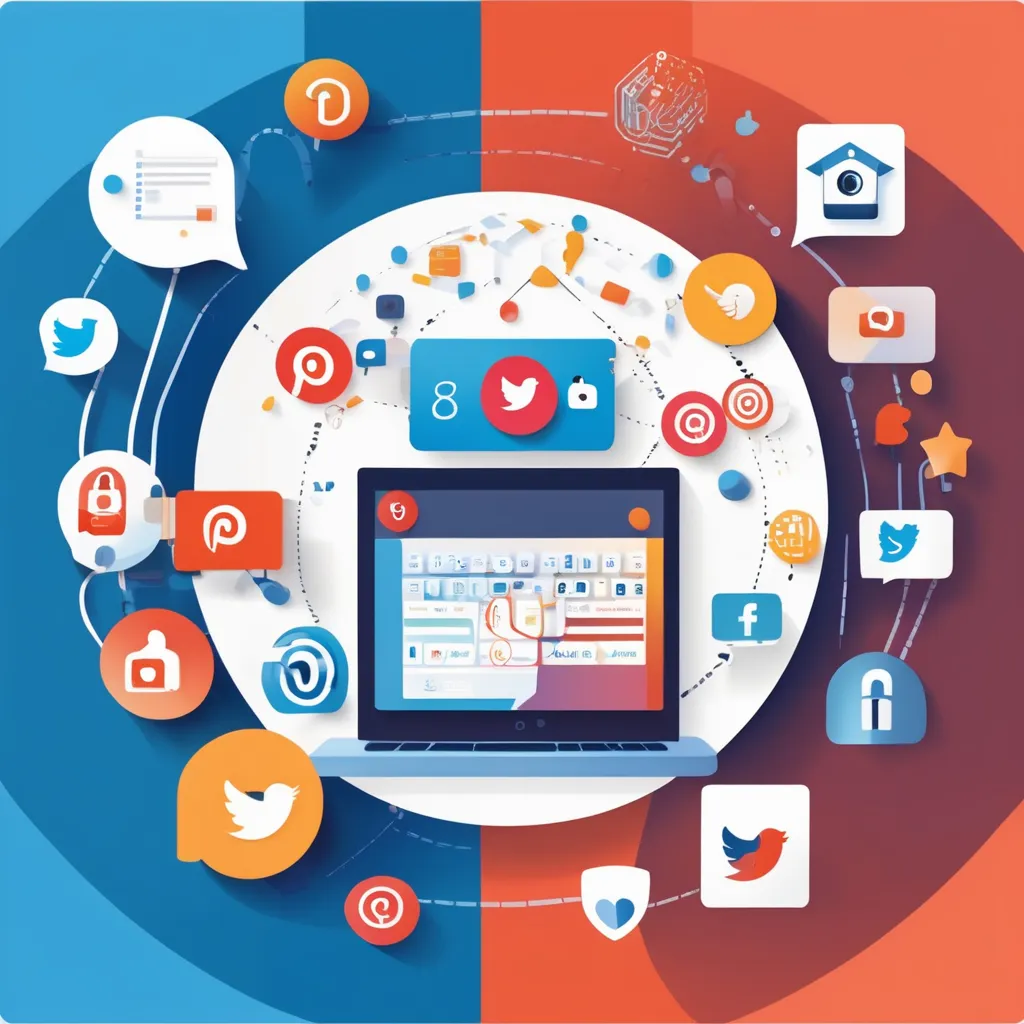
In this digital era social media has become an integral part of our lives. It us to connect with friends and family, share our thoughts and experiences, and stay updated with current affairs. However, the convenience and fun that social media brings also come with potential risks to our privacy.
Common privacy concerns with social media use are numerous. Firstly, social media platforms collect massive amounts of data about their users. Everything from our personal information, likes and dislikes, to browsing history and location is meticulously tracked. This wealth of information can be used for targeted advertising, but it also raises concerns about how our data is being shared and potentially misused.
Another concern is the lack of control over our own data. Once we post something on social media, it can spread like wildfire, and even if we delete it later, it might have already been saved or shared by others. This loss of control over our information can be troubling, especially considering the negative consequences it may have on our personal and professional lives.
Furthermore, far-reaching data breaches have become a recurring occurrence affecting social media platforms. These breaches expose millions of users’ personal data, leaving them vulnerable to identity theft, fraud, and other cybercrimes. Such incidents highlight the need for stronger security measures and heightened privacy protection within the realm of social media.
So, why is social media privacy important? Firstly, our personal information is valuable, and it is our right to decide how it is handled and shared. Additionally, the misuse of our data can lead to various forms of exploitation, including targeted scams or discrimination. Moreover, in today’s highly interconnected world, protecting one’s privacy can contribute to the overall health of online communities and safeguard against the potential abuse of power.
Fortunately, there are steps individuals can take to protect their data when using social media. Firstly, it is crucial to review and customize our privacy settings on each platform we use. We should carefully consider who can see our posts, who can contact us, and what information we want to make public. Regularly updating these settings ensures that we maintain control over our personal data.
Secondly, being mindful of the content we share is vital. We should avoid oversharing personal information such as our home address, phone numbers, or financial details on social media platforms. Cybercriminals often exploit this type of information for malicious purposes. By being cautious about the data we expose, we reduce the risk of falling victim to online threats.
Additionally, it is recommended to limit connections with people you don’t know personally. Accepting friend requests or connection invitations from strangers can grant them access to your information and increase the likelihood of privacy breaches. Being selective in accepting connections ensures a smaller circle of trusted individuals in your social media network.
Lastly, regularly reviewing and removing unnecessary apps connected to your social media accounts is essential. Many applications ask for excessive access rights to your personal information, possibly collecting data you would rather not share. Removing these apps decreases the potential avenues through which your data can be compromised.
In conclusion, while social media has revolutionized the way we communicate and share our lives, it also poses risks to our privacy and data security. Awareness and caution are key to protecting ourselves in this digital world. By understanding common privacy concerns, recognizing the importance of social media privacy, and implementing preventive measures, we can navigate social media responsibly and safeguard our personal information. Remember, your data is valuable, and you have the right to keep it safe.
Click here for more Article : https://socialinfozone.com/

Great reminder about balancing social media enjoyment with privacy protection—staying proactive about our data is essential!
We truly appreciate you taking the time to share your thoughts with us. Your feedback and insights help us grow and create even better content for you. It’s amazing to have such a supportive community like you engaging with our articles.
Keep sharing your views – we’re always eager to hear from you!
Warm regards,
The SOCIALINFOZONE Team
A valuable reminder to balance social media enjoyment with privacy protection—being proactive about our data is crucial!
We truly appreciate you taking the time to share your thoughts with us. Your feedback and insights help us grow and create even better content for you. It’s amazing to have such a supportive community like you engaging with our articles.
Keep sharing your views – we’re always eager to hear from you!
Warm regards,
The SOCIALINFOZONE Team